Draw The Product For Each Of The Following Sn2 Reactions
Draw The Product For Each Of The Following Sn2 Reactions - Web 7.3 draw the product for each of the following sn2 reactions: Draw the product for each of the following sn2 reactions. Draw the products of attached sn1 reaction and indicate the. Web draw the products of each of the following sn2/e2 reactions. Those that begin with the ( s ) enantiomer as the. If the products can exist as stereoisomers, show which stereoisomers are formed: So the substrate is primary. Draw the substitution products for each of the following sn2 reactions. Web 1) for the following, please determine what kind of reaction is occurring and predict the product(s). Web draw the products of each sn1 reaction and indicate the stereochemistry when necessary. Draw the products of attached sn1 reaction and indicate the. Web 1) for the following, please determine what kind of reaction is occurring and predict the product(s). The product will be ch3och3. Practice the skill 07.03 draw the product for each of the following sn2 reactions. Predict the mechanism as sn1, sn2, e1 or e2 and draw the major organic. Consider any regioselectivity and stereoselectivity where. If the products can exist as stereoisomers, show which stereoisomers are formed. Those that begin with the ( s ) enantiomer as the. The product will be ch3och3. Web 7.3 draw the product for each of the following sn2 reactions: Draw the substitution products for each of the following sn2 reactions. Determine if the substrate is primary, secondary, or tertiary. Sn1, sn2, e1, and e2 reactions form the basis for understanding why certain products. If the products can exist as stereoisomers, show which stereoisomers are formed: Practice the skill 07.03 draw the product for each of the following sn2 reactions. Do not draw the leaving group that is expelled as a result of the process. Practice the skill 07.03 draw the product for each of the following sn2 reactions. Web in conclusion, s n 2 reactions that begin with the (r) enantiomer as the substrate will form the (s) enantiomer as the product. Web the mechanism, rate law, and stereochemistry. Determine if the substrate is primary, secondary, or tertiary. Web 7.3 draw the product for each of the following sn2 reactions: If the products can exist as stereoisomers, show which stereoisomers are formed: How the sterics of the alkyl halide affect the reaction rate. Do not draw the leaving group that is expelled as a result of the process. Those that begin with the ( s ) enantiomer as the. Practice the skill 07.03 draw the product for each of the following sn2 reactions. So the substrate is primary. Do not draw the leaving group that is expelled as a result of the process. Determine the rate law & predict the mechanism based on its rate equation or reaction. Do not draw the leaving group that is. Web 1) for the following, please determine what kind of reaction is occurring and predict the product(s). If the products can exist as stereoisomers, show which stereoisomers are formed: Determine the rate law & predict the mechanism based on its rate equation or reaction data for s n 2 reactions. So the. Web in conclusion, s n 2 reactions that begin with the (r) enantiomer as the substrate will form the (s) enantiomer as the product. Web the mechanism, rate law, and stereochemistry of sn2 reactions. The product will be ch3och3. Do not draw the leaving group that is. Draw the product for each of the following sn2 reactions. Predict the mechanism as sn1, sn2, e1 or e2 and draw the major organic product formed in each reaction. Web 7.3 draw the product for each of the following sn2 reactions: Draw the substitution products for each of the following sn2 reactions. Web draw the products of each of the following sn2/e2 reactions. Consider any regioselectivity and stereoselectivity where. Web 7.3 draw the product for each of the following sn2 reactions: Draw the substitution products for each of the following sn2 reactions. Predict the mechanism as sn1, sn2, e1 or e2 and draw the major organic product formed in each reaction. Consider any regioselectivity and stereoselectivity where. Do not draw the leaving group that is. A) the substrate is a secondary halide so the. Web the mechanism, rate law, and stereochemistry of sn2 reactions. Draw the product for each of the following sn2 reactions. Draw the substitution products for each of the following sn2 reactions. Determine if the substrate is primary, secondary, or tertiary. Let’s look at some example reactions. Determine the rate law & predict the mechanism based on its rate equation or reaction data for s n 2 reactions. Web draw the products of each of the following sn2/e2 reactions. Web draw the products of each sn1 reaction and indicate the stereochemistry when necessary. If the products can exist as stereoisomers, show which stereoisomers are formed. How the sterics of the alkyl halide affect the reaction rate. Sn1, sn2, e1, and e2 reactions form the basis for understanding why certain products. Those that begin with the ( s ) enantiomer as the. Web in conclusion, s n 2 reactions that begin with the (r) enantiomer as the substrate will form the (s) enantiomer as the product. Do not draw the leaving group that is. So the substrate is primary.
For The Following Sn2 Reaction Draw The Organic And Products

OneClass For the following Sn2 reaction, draw the organic and
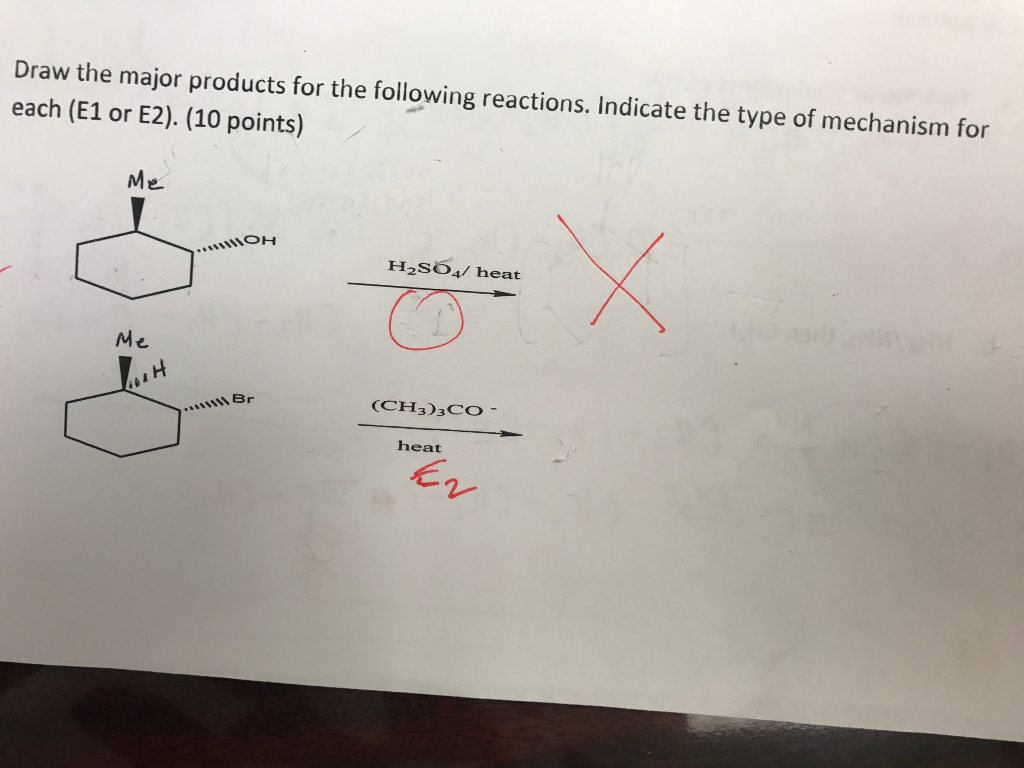
Solved Draw the major products fo the following reactions.
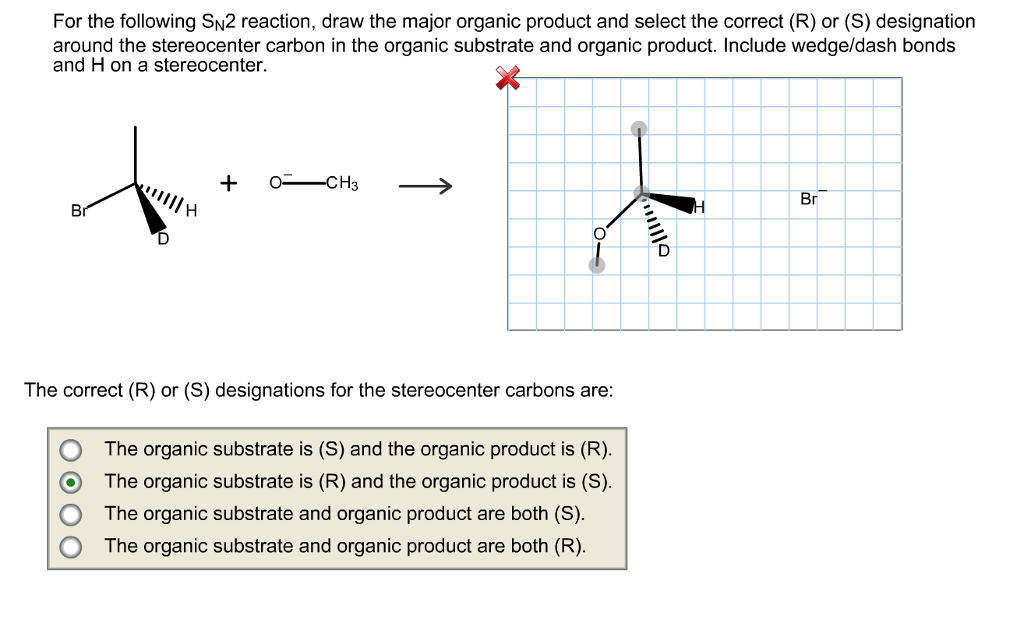
Solved For the following SN2 reaction, draw the major

OneClass 1. Draw the product(s) of the following SN2 reaction. Assign

OneClass For each SN2 reaction below, draw the product (s) of the
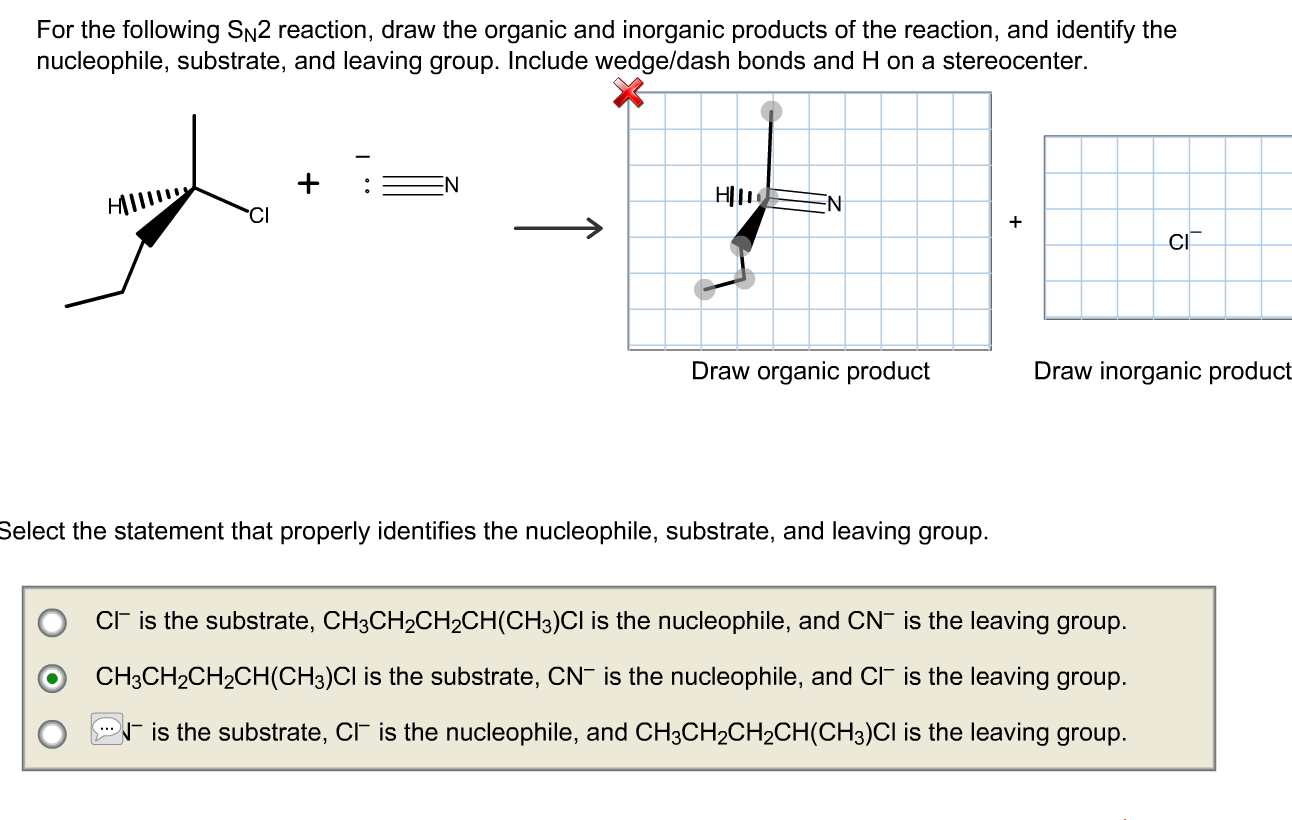
Solved For the following Sn2 reaction, draw the organic and

Draw the Correct Organic Product of the Following Sn2 Reaction.
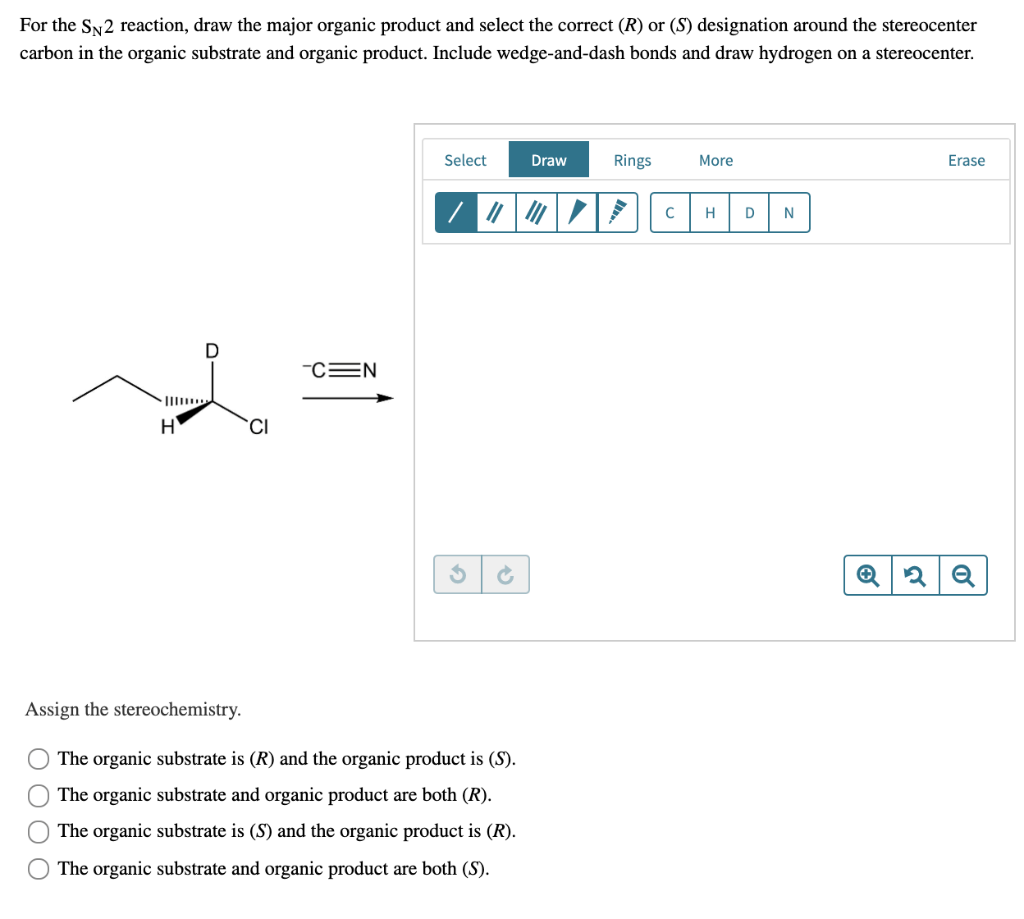
Solved For the SN2 reaction, draw the major organic product
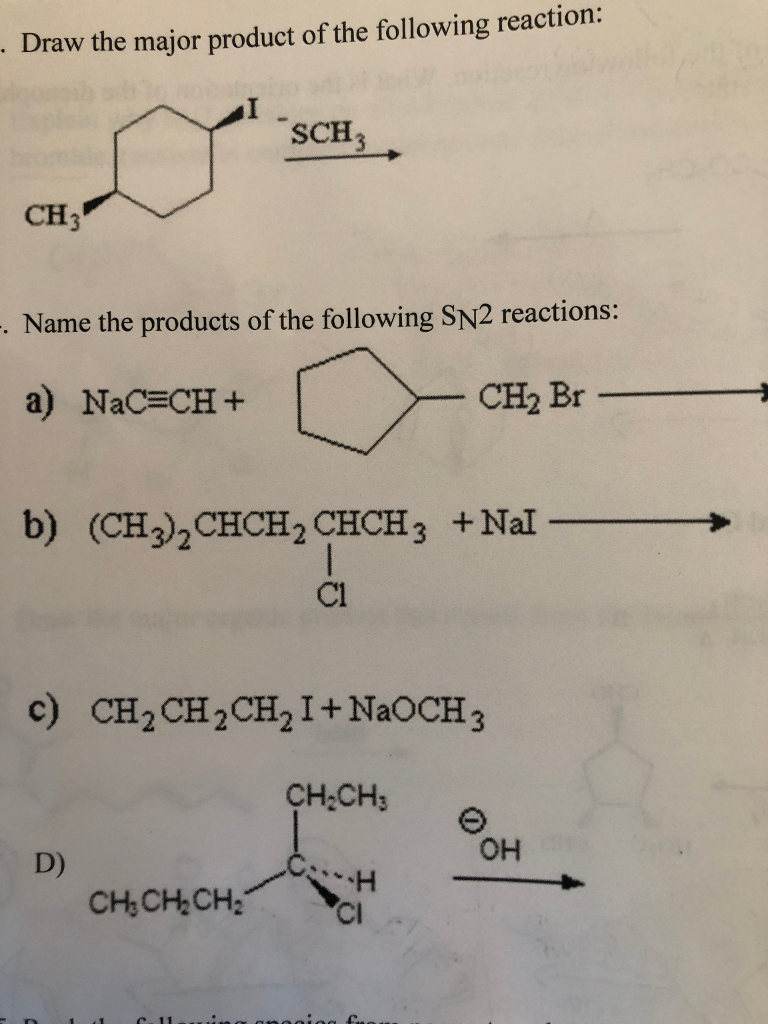
Draw Major Product Following Reaction Visch Ch3 Name Products Following
Practice The Skill 07.03 Draw The Product For Each Of The Following Sn2 Reactions.
The Product Will Be Ch3Och3.
Web 1) For The Following, Please Determine What Kind Of Reaction Is Occurring And Predict The Product(S).
Predict The Mechanism As Sn1, Sn2, E1 Or E2 And Draw The Major Organic Product Formed In Each Reaction.
Related Post: